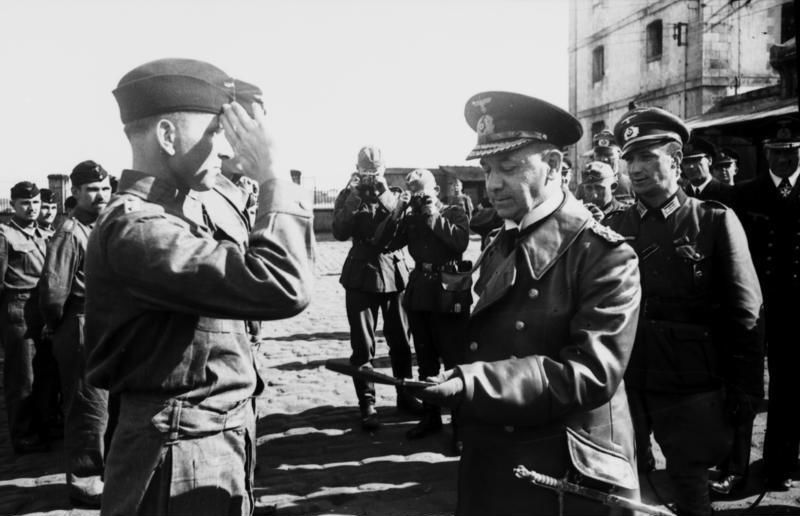Admiral Erich Raeder headed the German naval forces even before Hitler came to power. He was not a staunch Nazi, but he hoped the Nazis would be able to revive the powerful fleet the country had lost as a result of the First World War. The Nazis indeed managed to do so. However, Germany failed to catch up with Great Britain in terms of the number of ships before the start of World War II. There was only one-way path left for the admiral - to retire and appear in court after the defeat of the Reich to answer for his military crimes.
The son of a teacher and servant of the emperor
Erich Johann Albert Raeder was born on 24 April 1876 in Wandsbek near Hamburg. His father was a schoolteacher. At the age of 19, Erich began serving as a cadet in the Imperial German Navy (Kaiserliche Marine). At first, the bosses did not pay much attention to this short, unathletic young man, who was sort of a private person. But his academic achievements made them change their attitude towards him. Two years later, he was promoted to the rank of junior lieutenant and was assigned to the battleship "Saxony". He served there for a while and soon ended up aboard the "Germany" (the flagship of Prince Henry, brother of Emperor William II, who favoured the young officer).
In 1905 Raeder graduated from the Naval Academy with the rank of lieutenant commander. He spent three months in the Russian Empire, where he studied Russian - before that he had learned English and French. Then he served as a navigator on a coastal defence battleship, and in 1906 moved to the Navy's Information Department, where he was in charge of the foreign press, worked as an editor of the magazine "Marine-Rundschau" (Naval Observer) and the yearbook "Nautilus".
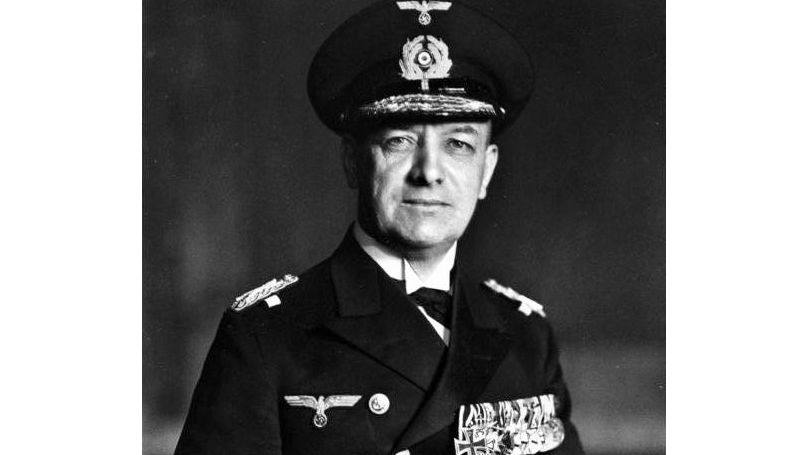
One of Raeder's retired colleagues wrote about him, saying: "being a smart man, he always listened to someone else's point of view. Raeder was suitable for working with the foreign press more than anyone else; he gave quite acceptable responses to numerous questions from other countries".
In 1910, the monarchist Raeder received the position of navigator on the personal yacht of Kaiser (Emperor) Wilhelm II, Hohenzollern, and he was always very proud of this fact of his biography. The next year, 1911, he was awarded the rank of Korvettenkapitän (Captain 3rd Class).
During World War I, Raeder planned several mine-laying operations and as well as shelling on the shores of Great Britain. He participated in naval battles as well: in the battle of Dogger Bank on 24 January 1915 and in the Battle of Jutland on 31 May – 1 June 1916. In November 1914 he was awarded the Iron Cross 2nd Class, and in February 1915 - the Iron Cross 1st CLass for his military merits.
Raeder's career took off quickly: in 1917 he became chief of staff to Admiral von Hipper, the commander of the cruiser contingent, in January 1918, he was appointed the commander of the cruiser "Köln", and in October 1918 - chief of the Central Bureau of the Naval Command.
From disfavour to the top
After losing the war, under the terms of the Treaty of Versailles, Germany was deprived of the right to have a submarine fleet and was severely limited in the number of surface ships. It's no wonder that Raeder supported the Kapp putsch in the spring of 1920 - a revolt by the conservative military against the Weimar Republic. After the failure of the coup, the obstinate head of the Central Bureau of the German Navy (then named the Reichsmarine) was removed from his post and sent to the Navy Archives.
But while doing "paperwork" there Raeder wasted no time either. He published several scientific works ("Cruiser Warfare in Foreign Waters", "Activities of the light cruiser Emden and the Karlsruhe", and "War at sea"), becoming the country's largest specialist in cruising operations of the fleet. In his spare time, he attended the Philosophy Department at the University of Berlin and translated naval literature into German, including the trilogy by Russian Imperial Navy officer Vladimir Semenov "The Tragedy of Tsushima".
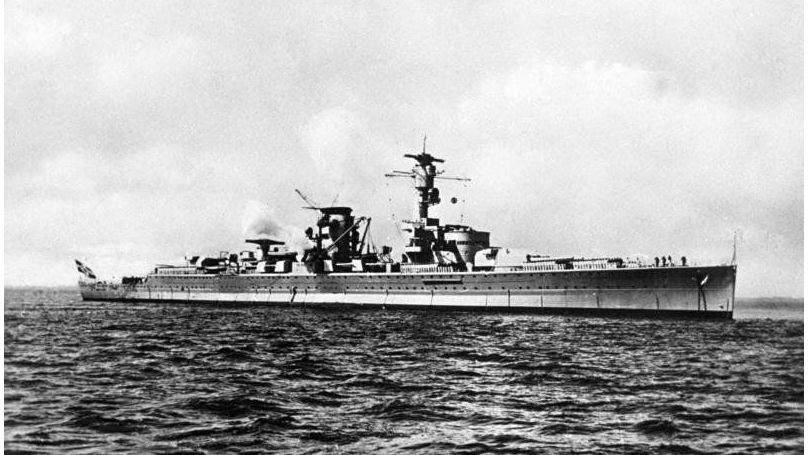
Raeder came to the conclusion that one of the reasons for the defeat of the German fleet in the First World War was its passivity in the North Sea. Kiel University even awarded Raeder an honorary doctorate.
In the same year, 1922, Raeder, who started to express support for liberals, regained the trust of the authorities and received the rank of rear admiral and soon became an inspector for naval educational institutions. In October 1924, he was appointed commander of the cruiser contingent of the North Sea, and in 1925 he was promoted to vice admiral. Starting in January of the same year, Raeder administered the Baltic naval area.
In August 1927, the "Loman affair" occurred in Germany - it was discovered that the country was secretly building warships despite the Treaty of Versailles. Naval authorities had to be urgently replaced. That’s when Raeder reached the pinnacle of his career - on 1 January 1928, he became chief of the naval command. On 1 October 1928, with the consent of the Reichstag, he was promoted to "full" admiral. The military historian Charles Thomas wrote, "Raeder persistently ensured that none of his more gifted subordinates question his authority, and during the entire time when he headed the fleet criticizing the commander was unacceptable".
Marine Führer
In 1933, Admiral Raeder supported the rise to power of the Nazis, hoping that they could revive the German Navy and carry out large-scale rearmament (in violation of the Treaty of Versailles, however, such actions had already been taken).
"The Nazi seizure of power in 1933 was a signal to Raeder to start rearmament at maximum speed", Frederick Alvin Jones, a British junior lawyer said at the Nuremberg Trials.
The admiral supported the concept of a "balanced fleet", which included all types of ships, and he convinced Adolf Hitler of the credibility of this idea.
However, he was wary of the new government’s ideology at first: he resisted Nazi propaganda in the navy, tried to preserve the exclusiveness of the officer corps, and insisted that no Gestapo agents be in the ranks of his subordinates. Thanks to his perseverance, the German Navy, unlike the army, escaped large "purges" and retained most of its staff.
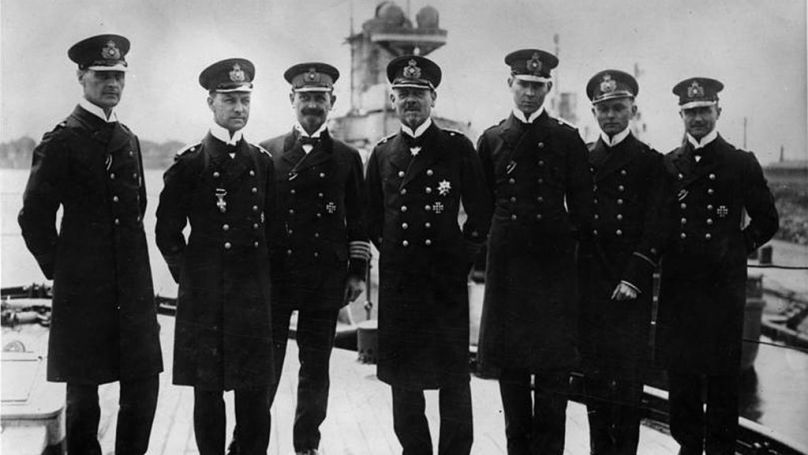
On matters of principle, Raeder could even confront Hitler - that was the difference between the admiral and Chief of Armed Forces High Command Wilhelm Keitel, nicknamed the "Nodding Donkey". On the other hand, Hitler valued Raeder as an influential officer and on 30 January 1937, on the anniversary of the Nazis' coming to power, presented him with a gold NSDAP party badge, awarded to those persons who were not members of the party, but who added significant merits to it. Later, the admiral claimed that he had destroyed this badge.
Raeder did everything he could to convince Hitler of the need for a powerful naval fleet. On 16 March 1935, the Führer announced that Germany would denounce the Treaty of Versailles, which had limited its armaments. On 21 May, the Reichsmarine were renamed the War Navy (Kriegsmarine), and Raeder became the commander-in-chief. On 18 June, the Third Reich and Great Britain (France wasn't involved in these negotiations) agreed to re-establish a full-fledged German Navy. However, it was limited in displacement: for surface ships - up to 35% of the British fleet (on the same basis as the French and Italian fleets), for submarines - 45%. Submarine tonnage could be increased up to 100% after informing the British.
This meant that the Third Reich could deploy a large-scale shipbuilding programme. It was officially declared on 9 July 1935. In 1938, Germany announced to Great Britain that it intended to maintain a submarine fleet equal to the British, and on 28 April 1939, it denounced the agreement. Yet, the speed of construction of ships did not fully correspond to the Führer’s military plans: in 1938 Raeder told Hitler that "if the war begins within two years, the fleet won't be ready for it".
"From 1933 to 1938, Raeder's responsibility for the political decisions of the Nazi state rapidly grew, and over time he became a member of all main political advisory bodies", Alvin Jones noted. "He was a member of the inner circle of conspirators and must share the responsibility with them for the actions that led to the German invasion of Poland in 1939 and to the beginning of the war".
Anti-Semite or Protector of Jews?
On 17 January 1939, Raeder presented "Plan Z" (from German Ziel - target) to the Führer. The document contained arguments for strengthening the fleet, valid until 1947 and provided the Kriegsmarine with absolute advantages over the Wehrmacht and the Luftwaffe. On 27 January, Hitler approved the plan, and on 1 April, Raeder received the rank of grand admiral (an analogue of field marshal for naval officers).
On 12 March, the grand admiral gave a speech in the presence of Hitler, where he praised the Führer and the party: "National Socialism, which originates from the spirit of the German soldiers was chosen by the German people as its ideology. The German people follow the symbols of their rebirth with the greatest love and fanatical passion". "This speech by Raeder is the final proof of his deep and personal involvement in the Nazi conspiracy", Alvin Jones said.
There was also an anti-Semitic phrase in the speech: "This is the basis for a clear and merciless determination to fight against Bolshevism and international Jewry, whose activities aimed at destroying the nation, what we had have experienced on our own people". However, when it came to Jewish naval officers, Raeder protected them and did everything he could to save subordinates from racial persecution.
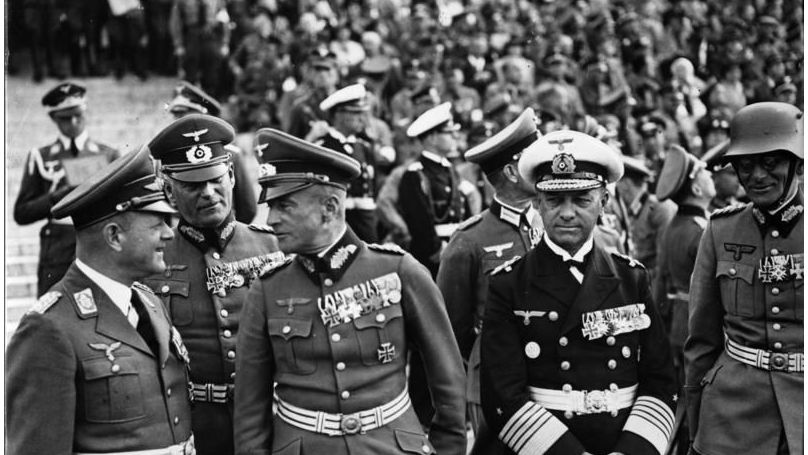
In the same spring of 1939, Raeder had a conflict with Hitler that damaged their relationship dramatically. The commander-in-chief of the Navy, who was an exemplary family man and a champion of strict morals, found out that Hitler's personal adjutant, Kriegsmarine Fregattenkapitän Alvin Albrecht, had married a woman with a dubious reputation. The grand admiral arrived at the Führer's residence and demanded to fire Albrecht, threatening to resign. Hitler rejected Raeder, but in response, Raeder fired the disgraced officer from the navy. The Führer still accepted Albrecht into the service as a personal adjutant but from the National Socialist Motor Corps. The affair ended with Greta Albrecht leaving her husband for her lover.
"He contributed to the preparation of the war, what indicated in the first paragraph of the indictment; he participated in the political planning and preparation by the Nazi conspirators of aggressive wars and wars that violate international treaties, agreements and assurances, what specified in paragraphs one and two of the indictment", US prosecutor Sidney Alderman, who read out the indictment, noted.
"He carried out and assumed responsibility for the implementation of the plans of the Nazi conspirators to wage aggressive wars that violate international treaties, agreements and assurances specified in paragraphs one and two of the indictment; He authorised, directed, and participated in the war crimes specified in paragraph three of the indictment, including in particular war crimes related to naval war".
"Honourable death is all that's left"
In August 1939, Germany entered the war. Plan Z had just started to be implemented, so the grand admiral wrote in his personal diary: "Our surface fleet can do nothing but demonstrate the ability to die with honour”.
However, he gave the orders which he was demanded to - he ordered to mine British territorial waters and start cruising operations in the Atlantic; initiated the plan for the occupation of Norway ("Weserübung-Nord") and actively led its implementation. According to Alvin Jones, along with the leader of the Foreign Policy Office of the NSDAP, Alfred Rosenberg, Raeder was "the most active participant in the conspiracy" to invade Norway, since Raeder considered it to be "important from a strategic point of view". The grand admiral also made contact with the Norwegian politician Vidkun Quisling and recommended him to Hitler. Quisling subsequently headed the collaborationist pro-Hitler government.
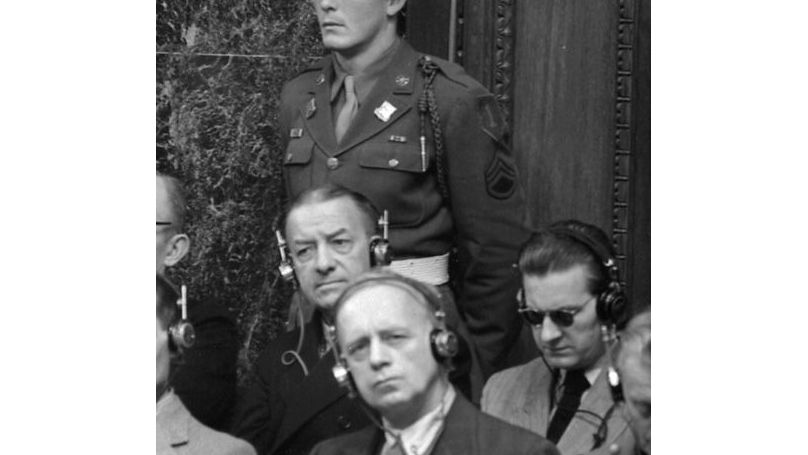
"[Raeder's] individual responsibility for the aggressive and merciless attack on Norway and Denmark is particularly undeniable", US prosecutor Telford Taylor said. "The prosecution submits that throughout his career Raeder completely disregarded international rules or customs of war that in any way interfered with his intentions to enforce the Nazi takeover programme”, Alvin Jones stated. He also called Raeder "a man without principles", referring to his order to drown ships of then neutral Greece without warning.
Yet, the advantage of the British surface fleet over the German Navy, unremarkable in peacetime, became obvious during the war. By June 1940, only one cruiser with 8-inch guns, two light cruisers, and four destroyers remained active in the German fleet. In October 1939, Plan Z was abandoned due to such losses. On 10 October, Raeder asked to increase the production of submarines from 2 to 29 per month, but Hermann Göring, who was in charge of weapons production, insisted that the grand admiral use his own facilities.
In May 1941, the battleship "Bismarck" was destroyed along with its commander during a military operation. On 31 December 1942, the German fleet, trying to attack another Arctic convoy, carried out the unsuccessful "New Year's battle". The Germans retreated in the face of weaker forces of the British fleet during the battle, and almost lost the heavy cruiser “Admiral Hipper”. On 6 January 1943, Hitler, who was furious about the failure, ordered Raeder to disband the surface fleet. In response, the grand admiral’s resignation was demanded, and this time the request was accepted.
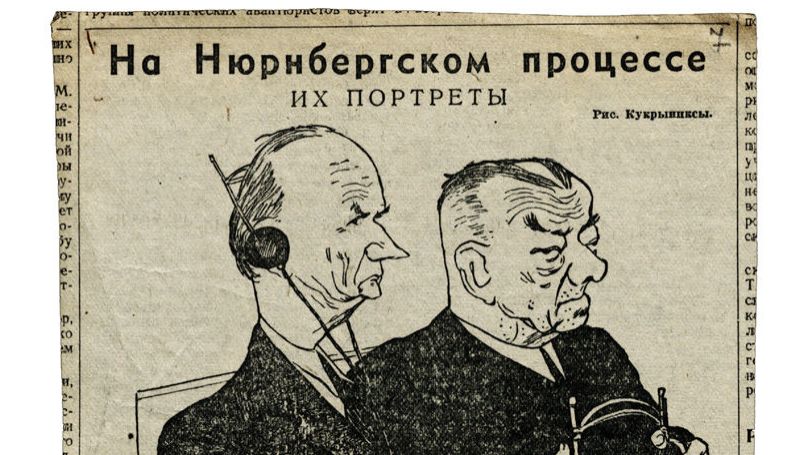
On 30 January 1943, Hitler appointed Gross Admiral Karl Dönitz, head of the submarine fleet, who was more successful in the war, grand admiral of the Kriegsmarine. Raeder received the honorary position of admiral inspector, but in fact, he had no real power and responsibilities.
In May 1945, Raeder was captured by Soviet troops and sent to prison in Lichtenberg, and then to Moscow, together with his wife. There he was housed in a country cottage and treated more like a guest. It’s no wonder the grand admiral was very surprised when he found himself in Nuremberg. But it was impossible for the chief sailor of the Third Reich to escape justice.
The editors of the "Nuremberg. Casus Pacis" express gratitude to military observer Ilya Kramnik for assistance in preparing the material
Sources:
Oleg Vishlev. Erich Raeder // Great Russian Encyclopaedia
Konstantin Zalessky. Leaders and military commanders of the Third Reich
Konstantin Zalessky. NSDAP. Power in the Third Reich
Andrey Gordienko. World War II commanders
Samuel William Mitchum Jr., Gene Mueller. Commanders of the Third Reich
